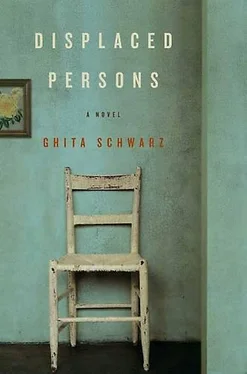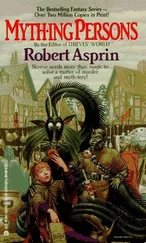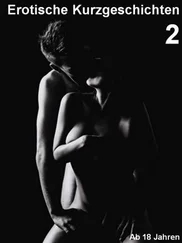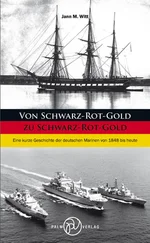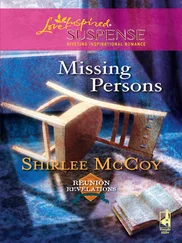Marek opened the door. You are later than I thought.
I had something to take care of, said Pavel. Business with the committee.
Ah, said Marek. Pavel regretted even his small explanation. Marek had a habit of thinking everyone cheated him. No doubt he thought even Pavel made money on the side with Yidl and his friends.
Political business, Pavel corrected.
Of course, Marek answered.
They climbed the two flights to Marek’s apartment. Now with Kuba gone, Marek lived with a new woman friend, but the home he had once shared with Kuba was unchanged. Empty. Pavel had met her only a few times; his business partnership with Marek was distant. Better that way. With Kuba, there had been a forced joviality, a wish to act like family. It had been awkward to disagree. But since Kuba and Hinda had left, Pavel and Marek had settled into a formality that was almost easier than what Pavel had with his brother-in-law. And besides, who was Kuba to complain now, with Pavel making enough even to send Kuba and Hinda a bit of money as they struggled in their new home? It felt good to have someone to take care of, now that Chaim had left too.
Pavel missed Chaim. He didn’t blame him, but he missed him. The young cousin Rayzl had gone to Palestine before the war there had really finished, and she wrote to Chaim every week, begging him to hurry. She sewed shoes on a kibbutz, she could find him a space on her collective, she spoke for the new refugees on the council, she learned Hebrew at night, she had met a lovely man on the evening patrols, yes, women did it too, they were as equals, almost-there was no end to her pleading. And Pavel couldn’t blame her either. Business or no business, Pavel craved to be near his sister again, he craved to be near his blood, if she had gone to the Holy Land he might have followed her there too. Still Pavel had had a thought, an idea, that young Chaim could come with them to America, even if it were difficult, even if Pavel were difficult to live with, Fela told him so herself. But did not Chaim adore Fela? No, blood mattered, at least to the stingy immigration authorities, and with no one to sponsor him to America, Chaim could not wait anymore. And so: just as quickly as they had absorbed themselves into one life, they separated: a family after all, a family that wept to be rent.
And perhaps it had been hard for Chaim when Hinda appeared, for the more Pavel had worked hard to connect himself with Kuba, and to bring Hinda into their little house life, the more Chaim and Fela returned to the strange togetherness they had with each other, as if they were conversing in silence, as if they were pretending to be brother and sister again. Chaim had not liked Marek. He rubs at me, he had said.
It had made Pavel smile. This skinny man? He only senses how intelligent you are. For this reason he is not so friendly.
But Fela had believed Chaim. You think you know everything, Pavel, but really you are naive, an innocent.
I, an innocent? He had laughed out loud at the sentence. The man is a childhood friend of my brother-in-law. What is there not to trust?
But now again in Marek’s apartment Pavel thought, It will be good to return to my sister, even in a new place, even in America. Even if there is a new language to learn and use. It was significant, real blood.
Aloud to Marek he said, I have had word today. I have a feeling we will be going soon.
Marek glanced at him. You paid?
No! Not in money, legitimate. But-and I tell you this in confidence-
Of course-
I have something of value.
Stones, Marek said.
Pavel started. How could Marek know? Even Fela did not know, even Hinda-he might have mentioned to Hinda that he had valuables, but specifics, never-no one knew. Still he kept himself calm. Yes, Pavel said, I have stones. Who told you?
I heard you mention it once-you have forgotten, no matter.
I want to make a deal with them, and I want you to help me. Pavel opened his jacket, reached down into the inside pocket, and took the velvet pouch into his hand. For a brief moment he felt embarrassed, ashamed, almost idolatrous. But he shook away the thought. What had Fishl done with his share of the stones? He had taken advantage early. Now the opportunity was upon Pavel, and he would use it to arrive in the new country with resources, with a way to care for his wife and new child without depending on anyone. He shook the pouch over his spread palm and stretched his hand-glittering-out toward his partner.
Once, said Marek, you said coffee is better than diamonds.
It still is, said Pavel.
Maybe, said Marek, maybe not.
I do not need luxuries. I need to make a safe journey for my family. If I sell here, I can have a little more safety.
So?
So. So I ask you-I don’t want it around that I have this-I worry for interference from the authorities, so close now to the departure. You can take ten percent from me, but I need for you to make the transaction.
Marek was silent.
I entrust them to you. Even my wife doesn’t know I-
Of course! Marek burst in. Why should she know?
My man is in Hamburg. Not the buyer, but the intermediary. I have an appointment with Yidl Sheinbaum to discuss our papers. You do it, you meet this Hollander, then if you are still here when we go-
Ah, said Marek. Probably.
You have him as your connection. And that is that!
Marek paused. How will he know if they are real?
Pavel sighed. Marek. He already knows. That is why he wants to buy them. Call to him today, then we will travel tomorrow together to Hamburg. I’ll hold them until then.
They brought out their ledgers.
ON MONDAY, PAVEL AWOKE to the sound of light rain. Soft wind hit the windows from the west, and Pavel pulled on his robe to look out. It was unusually dark, although the storm was not heavy. Yes, it would get worse.
He leaned at the windowpane, staring. Soon-but how long had he been standing there? ten minutes? an hour?-the sky began to brighten. Fela was not yet up. She slept longer now, deeper. She had not even moved when he got up from the bed; she remained on her side, spine curled away from him, body forming a semicircle, as if to protect the baby. This one had gone farther than all the ones before; the camp doctor assured them that this time, this time, things looked different. Fela even looked different, her amber hair lighter and thicker, her fine skin more easily flushed. She was past one of the danger points.
The first time she had lost a pregnancy, Chaim had discovered her, kneeling by her bed, dress dark with blood. Chaim had had the good sense to leave her there and bicycle for a military doctor; when he returned he had vomited the whole night through, Pavel pacing, witnessing the two of them in their sickness. Blood scared him also, especially the blood of a woman. His own mother had died within a day of giving birth to his youngest brother, so long ago. But the sight of both Fela and Chaim, their insides spilling, made him contain himself. He could remain composed, the eldest keeping watch. Chaim had been a nightwatch himself in the forest, he had told them-but now look: just a child, made ill and frightened by a terrible sight.
She would be a mother, Fela. She had a mother’s instincts: leave this place. She had wanted to go to Palestine when Chaml had left-they had clung to each other when Chaim departed, and Pavel himself had wept. But Pavel had wanted to wait for the chance at America. And now he felt he had been right.
HAVE YOU HEARD? SAID Yidl. It was the next afternoon, and Yidl’s face was bright, excited but not upset.
No, said Pavel, cigarette loose in the corner of his mouth.
Kresser, said Yidl. He hanged himself.
Pavel looked at him. He felt his hand move toward his mouth, take out the cigarette, feel the heat come closer to the tips of his fingers.
Читать дальше
